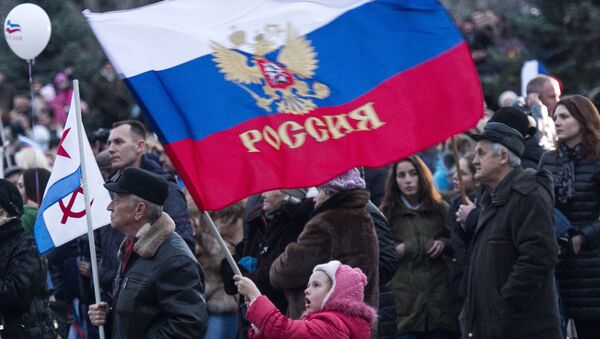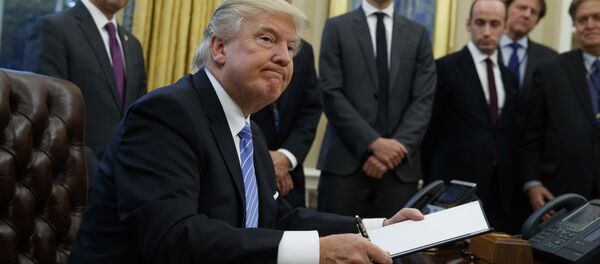There is "nothing new" about Spicer's comments; "he did not say anything which deviated from Donald Trump's campaign promises," the analyst pointed out. The statement on Crimea "means nothing in the context of political and economic relations" between Russia and the United States since "we have significantly more mutual interests than matters of dispute," he added.
The analyst further suggested that it is too early to discuss Trump's stance on Crimea and anti-Russian sanctions, dismissing comments on this topic as "nothing more than speculations." He also emphasized that it is not Trump's view of Crimea that matters when it comes to Washington's relations with Russia at this point.
"Russian President Vladimir Putin, his press secretary Dmitry Peskov and other Russian officials have repeatedly said that Trump is fundamentally different from Hillary Clinton in the sense that he has expressed readiness to listen to Russia's [concerns]," the analyst explained. "The presidential candidate from the Democratic Party has adhered to an approach which denied Moscow the right to have its own goals different from Washington's."
In fact, this is what Spicer said at the news briefing. "President Trump has made it very clear that he expects the Russian government to de-escalate violence in the Ukraine and return Crimea," he noted. "At the same time, he fully expects to and wants to get along with Russia."
In Krylov's opinion, "visionary US leaders" understand that Washington and Moscow pursue their own national interests which do not necessarily coincide. As a result, "both countries need to reach a compromise on the issue in order to promote international peace and stability," he asserted.
Never miss a story again — sign up to our Telegram channel and we'll keep you up to speed!




